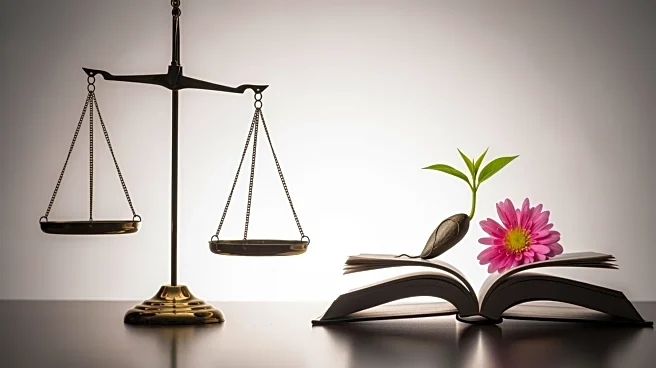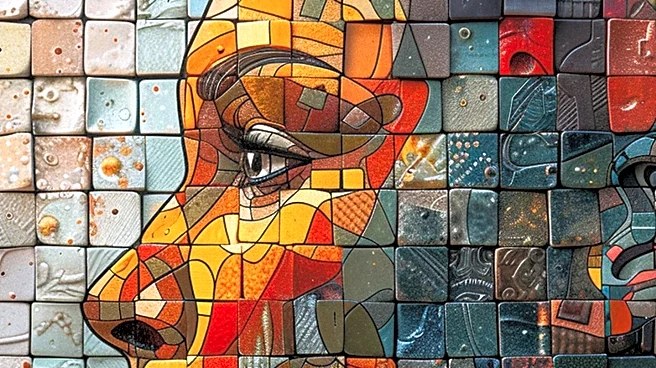What's Happening?
Four nonpartisan voting rights organizations in Indiana have filed a lawsuit against the state, challenging two new election laws that they argue unfairly burden naturalized citizens. The League of Women Voters of Indiana, Common Cause Indiana, Hoosier
Asian American Power, and Exodus Refugee Immigration are suing Secretary of State Diego Morales and Indiana Election Division co-directors J. Bradley King and Angela Nussmeyer. The lawsuit targets House Enrolled Act 1264 and House Enrolled Act 1680, which require certain U.S. citizens to provide documentary proof of citizenship to register or remain registered to vote. The plaintiffs claim these laws rely on outdated and error-prone data, disproportionately affecting naturalized citizens, particularly those who previously held temporary driver's licenses. The lawsuit argues that these requirements violate the National Voter Registration Act of 1993 and the Civil Rights Act of 1964.
Why It's Important?
The lawsuit highlights significant concerns about voter disenfranchisement, particularly among naturalized citizens in Indiana. By imposing additional documentation requirements, the laws could deter eligible voters from participating in elections, potentially impacting voter turnout and representation. The case underscores ongoing national debates about election security and voter access, with implications for civil rights and electoral fairness. If the lawsuit succeeds, it could set a precedent for challenging similar laws in other states, reinforcing protections for naturalized citizens and ensuring equitable access to the voting process.
What's Next?
The outcome of this lawsuit could influence future legislative actions and judicial decisions regarding voter registration laws in Indiana and beyond. If the court rules in favor of the plaintiffs, Indiana may need to revise or repeal the contested laws, potentially prompting other states to reevaluate similar legislation. The case may also attract attention from civil rights organizations and lawmakers, potentially leading to broader discussions and reforms aimed at protecting voter rights for naturalized citizens across the United States.
Beyond the Headlines
This legal challenge raises broader questions about the balance between election security and voter accessibility. It highlights the potential for laws intended to prevent voter fraud to inadvertently create barriers for legitimate voters, particularly in immigrant communities. The case also reflects the ongoing struggle to ensure that all citizens, regardless of their naturalization status, have equal opportunities to participate in the democratic process.















